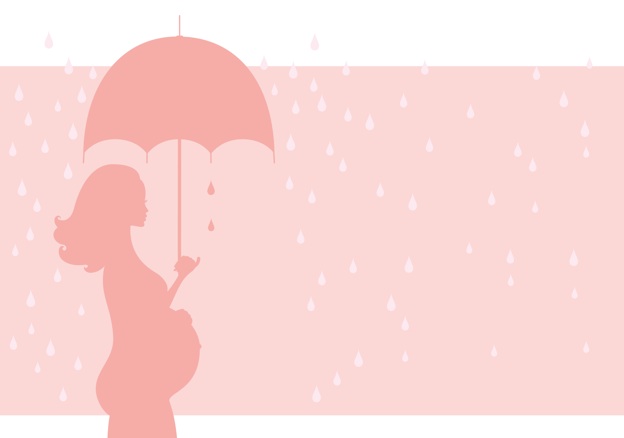SingaporeMotherhood | Pregnancy
June 2012
Your Pre-Conception Checklist

You have been cyber-stalking at your friends’ babies on Facebook; you have even been gawking at your colleague’s baby bump. When you find yourself secretly browsing those floral rompers at Baby Gap for the umpteenth time, the epiphany strikes: you are finally ready to have a baby!
But before you bin your husband’s entire Durex stockpile, stop for a minute and ask yourself this: Are you physically, mentally and financially prepared for a pregnancy?
Here are some important things you need to check off before booking that romantic weekend getaway.
[banner][/banner]
Schedule a preconception visit
It is always a good idea to schedule an appointment with your doctor before you take the plunge. If you have been taking birth control pills, your physician may recommend you to wait for a month or two before trying for a baby. This is because it can often take several months before your menstrual cycle returns to normal, post-Pill. In the meantime, you may wish to switch to another form of birth control.
Your doctor may also go through your health records to determine if you need to be immunised against infectious diseases such as chicken pox. If you are already vaccinated against Hepatitis A and B, check if a booster is due. Talk to your doctor about current and past health issues, family history and review your medications, if you are on any.
Get a flu shot
Getting a flu shot will help reduce the likelihood of you catching the flu during your pregnancy, which can result in serious complications. This is a useful precaution if you plan on taking an overseas trip to a cold weather destination before your baby arrives.
Give up drinking and smoking
Smoking is dangerous for you and your baby. Among the thousands of chemicals found in cigarette smoke, two of them—carbon monoxide and nicotine—can pass through your bloodstream and harm your foetus. Smoking also increases the risk of preterm birth, still birth, low birth weight and birth defects.
You may think that an occasional beer will do no harm to your unborn child but experts agree that when it comes to alcohol, the best policy is a teetotal one. Alcohol in your bloodstream passes to your baby through the placenta. Drinking can lead to Fetal Alcohol Syndrome in severe circumstances and Fetal Alcohol Effect in less severe instances. The damage caused is permanent.
Take a prenatal vitamin
Even with three meals a day, you may not get enough of the nutrients you need during your pregnancy. Prep your body by taking a prenatal vitamin that contains these three important nutrients: 1) folic acid, 2) iron and 3) calcium.
Researchers have found that women who take folic acid supplements every day have a better chance of getting pregnant, while iron helps guard against anaemia during pregnancy. Calcium, in particular, can be lacking in an Asian diet because Asians do not consume dairy products on a regular basis. When you are pregnant, you need 1,000 to 1,500 mg of calcium each day. This is the equivalent of three to five glasses of milk.
Eat healthy
Most of your baby’s major organs are developing in the first few weeks of pregnancy—even before you realise you are pregnant—so eating well when you are trying for a baby is one of the best things you can do for your unborn child. If you are overweight or underweight, establishing a healthy and well-balanced diet to get to your ideal BMI can help you conceive more easily.
Consider your weight
Although conception largely depends on whether your menstrual cycle is normal, being severely overweight or underweight may impact your likelihood to do so. Obese women may suffer from hormonal imbalances that can affect their menstrual cycles and prevent ovulation. The same goes for underweight women who have so little body fat that they do not ovulate regularly. Further, a mother who is underweight has a higher chance of giving birth to a low-birth-weight baby.
Instead of aiming for an “ideal weight”, calculating your body mass index (BMI), which is the ratio of your weight to your height, will guide you towards how much to lose or gain.
Get fit and stay fit
Are you in the best shape you can be for conception? Pregnancy is physically demanding and labour can be akin to an endurance test of your stamina and muscle strength. There is no better time to build up your fitness than pre-conception. Not only will you benefit from a boost in your energy level, you will also be conditioning your body for pregnancy-related problems such as leg cramps, back pain and swelling. If you are not used to exercising regularly, don’t jump into the deep end by signing up for a triathlon. Walking, swimming and gentle forms of yoga are good ways to kick-start a routine.
Talk through your decision with your spouse
Why do you want to start a family? Are you trying for a baby because everyone around you is having one or because you feel that time “is running out”? Set aside time to have a heart-to-heart conversation with your spouse and solicit his unwavering support and commitment. And although having a baby is often an emotional decision, talk through the practical aspects of child-rearing because these are the everyday issues you will have to deal with when baby arrives.
Examine your mental state
Most people assume that having children will make them happier. Yet, academic research has shown that parents are not necessarily happier than their childless peers. In fact, many are less so!
Andrew Oswald, an economist who has done extensive research comparing childless couples and couples with children says, “The broad message is not that children make you less happy; it’s just that children don’t make you more happy.” Rather than hoping that a baby will solve your marriage problems or your personal issues, why not work on them now so that you can welcome your child into a secure, loving home?
Take stock of your finances
Are you and your spouse prepared to make sacrifices in your current lifestyle after the baby arrives? Do you plan to go back to work or be a stay-at-home mom? The arrival of the little one will no doubt create stress on your finances.
Now is the time to take charge and start budgeting for your new family member. You may be surprised how much you can put aside if you start early. For instance, a trip to Thailand instead of Europe may just save you enough to equip a new nursery for your baby, not to mention some extra dollars to buy you those coveted Baby Gap rompers!
All content from this article, including images, cannot be reproduced without credits or written permission from SingaporeMotherhood.
Follow us on Facebook, Instagram, and Telegram for the latest article and promotion updates.






